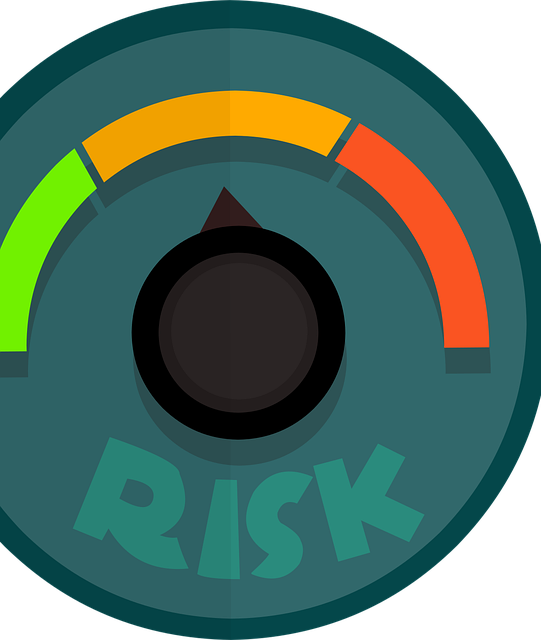Accounting firms face unique cybersecurity challenges in protecting sensitive financial data. Effective IT risk management is crucial with a focus on preventing phishing attacks, robust compliance services, and access controls like VPNs. Key practices include strong access controls, regular software updates, employee training, clear IT policies, audits, monitoring, and incident response planning to mitigate data breaches and maintain client trust.
In today’s digital age, accounting and CPA firms face unprecedented IT risks. Effective cybersecurity solutions are no longer a luxury but a necessity to protect sensitive financial data and maintain client trust. This comprehensive guide explores essential practices for managing these risks, from understanding tailored threats to implementing robust Data Protection strategies, access management, incident response planning, and staying ahead of emerging threats. By adopting best practices in IT risk management accounting, firms can safeguard their operations and thrive in a rapidly evolving landscape.
- Understanding IT Risks in Accounting Firms
- Essential Cybersecurity Practices for CPAs
- Data Protection Strategies: A Comprehensive Guide
- Managing Access: Employee Security Measures
- Incident Response Planning for Peace of Mind
- Staying Ahead: Emerging Threats and Prevention
Understanding IT Risks in Accounting Firms

In the realm of accounting and CPA firms, effective IT risk management is paramount to safeguarding sensitive financial data. These businesses often deal with vast amounts of confidential client information, making them prime targets for cybercriminals. Understanding and mitigating IT risks are therefore not just best practices but essential components of modern accounting firm operations.
One of the primary areas of focus should be preventing data breaches caused by phishing attacks, where malicious actors impersonate trusted entities to trick users into revealing sensitive information. Additionally, ensuring robust IT compliance services is vital to meeting regulatory standards and maintaining client trust. Implementing strong access controls, such as Virtual Private Networks (VPNs), can also help protect against unauthorized access, especially when CPAs work remotely.
Essential Cybersecurity Practices for CPAs

In the digital age, accounting and CPA firms face unique cybersecurity challenges due to their substantial handling of sensitive financial information. To mitigate potential risks, such as accounting data breaches and fraud, CPAs must adopt robust essential cybersecurity practices. This includes implementing strong access controls, regularly updating software and antivirus programs, and providing comprehensive employee training on phishing protection and security awareness. By prioritizing these measures, firms can significantly reduce the likelihood of falling victim to cyberattacks.
Effective IT risk management accounting involves a holistic approach that extends beyond technical solutions. Firms should establish clear IT policies that outline acceptable use guidelines, data protection procedures, and incident response plans. Regular audits and assessments are crucial to identify vulnerabilities and ensure compliance with industry regulations. Proactive monitoring and patch management practices also play a significant role in minimizing the risk of exploitation by malicious actors. Integrating these essential cybersecurity practices into their operations will help accounting firms safeguard their data, maintain client trust, and ensure business continuity.
Data Protection Strategies: A Comprehensive Guide

In the realm of accounting and CPA firms, effective data protection strategies are no longer a luxury but an essential component of IT risk management. With increasing cyber threats and the sensitive nature of financial data, firms must be proactive in safeguarding their information assets. A comprehensive guide to data protection begins with identifying potential vulnerabilities and implementing robust security measures. This involves regular security audits, encrypting sensitive data both at rest and in transit, and establishing access controls to limit unauthorized personnel from accessing critical systems.
Additionally, a well-defined IT policy implementation process is crucial. Firms should educate their staff on cybersecurity best practices, including strong password policies, multi-factor authentication, and phishing awareness training. By combining these proactive steps with advanced tools like firewalls tailored for CPAs, accounting firms can significantly reduce the risk of data breaches. Proactive IT risk management ensures that financial information remains secure, client trust is maintained, and the firm’s operations remain unharmed in today’s digital landscape.
Managing Access: Employee Security Measures

Effective IT risk management within accounting and CPA firms begins with robust access control measures. Firms should implement strong employee security practices to ensure that only authorized personnel can access sensitive financial data. This involves regular review and strict enforcement of access permissions, multi-factor authentication for critical systems, and training staff on best practices like recognizing phishing attempts. By limiting access, firms can significantly reduce the risk of unauthorized data breaches or malicious insider threats.
Additionally, integrating solutions like email encryption and conducting periodic cybersecurity audits further strengthens CPA data security. These proactive measures help identify vulnerabilities and ensure compliance with industry standards, thereby maintaining client trust and protecting critical financial information from potential cyberattacks.
Incident Response Planning for Peace of Mind

In today’s digital era, accounting and CPA firms face unprecedented IT risk management challenges from cyber threats like phishing protection and malicious software. To ensure business continuity and protect sensitive client data, robust incident response planning is essential. This involves establishing clear protocols for detecting, containing, eradicating, and recovering from security breaches. By implementing comprehensive cybersecurity audits and integrating tools such as VPNs for CPAs, firms can fortify their defenses against evolving cyber threats.
Peace of mind comes from knowing that immediate steps are in place to mitigate damage and restore operations swiftly. A well-crafted incident response plan not only helps in managing crises but also enables firms to maintain the trust of their clients. Regular drills and updates ensure the plan remains effective, tailored to the unique needs of the accounting industry, and aligned with best practices in IT risk management.
Staying Ahead: Emerging Threats and Prevention

In the ever-evolving digital landscape, accounting and CPA firms must stay ahead of emerging cyber threats to safeguard sensitive client data and maintain trust. As hackers become increasingly sophisticated, employing advanced techniques such as phishing, ransomware, and supply chain attacks, proactive cybersecurity measures are no longer optional but imperative. Effective IT risk management for accounting firms involves a multi-layered approach, combining robust security tools with regular cybersecurity audits and employee training.
One critical component is implementing a strong firewall for CPAs to filter network traffic and block unauthorized access attempts. Additionally, email encryption can significantly reduce the risk of data breaches caused by compromised inboxes. Regular cybersecurity audits ensure that the firm’s defenses are up-to-date and effective against the latest threats. By prioritizing these measures, accounting professionals can protect not only their operations but also their clients’ financial information, ensuring a secure and resilient digital environment.
